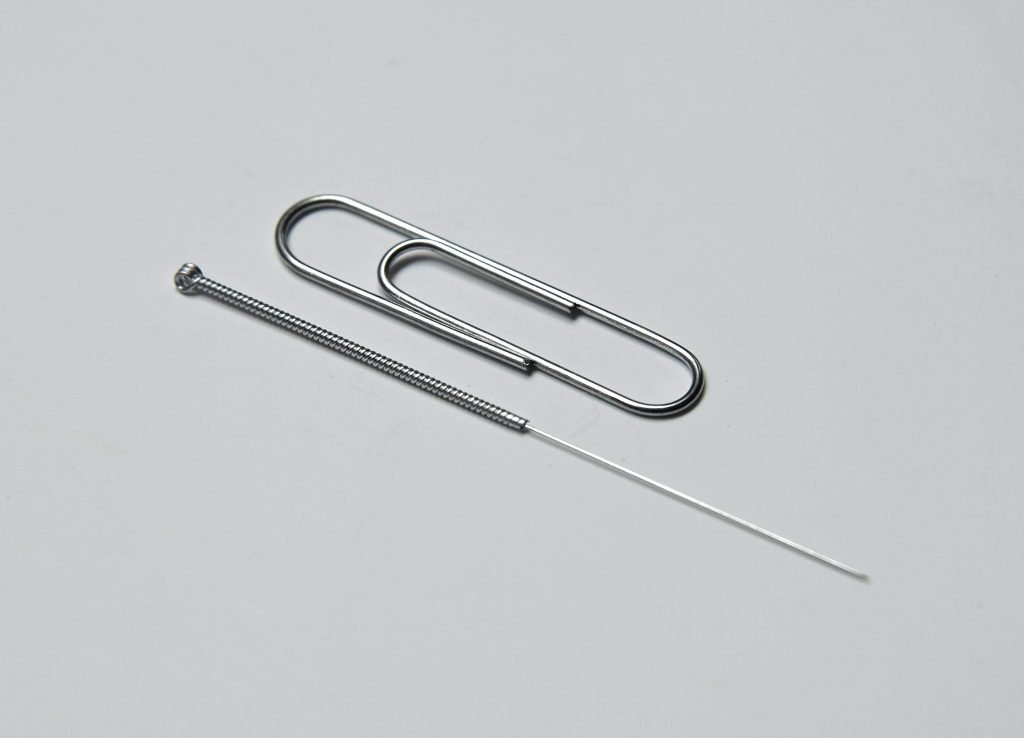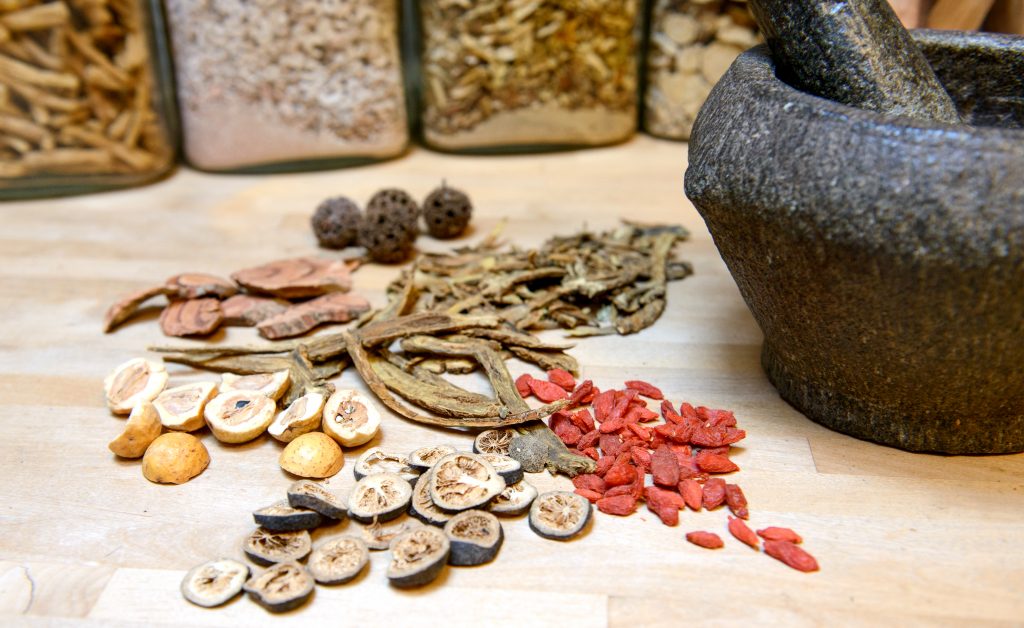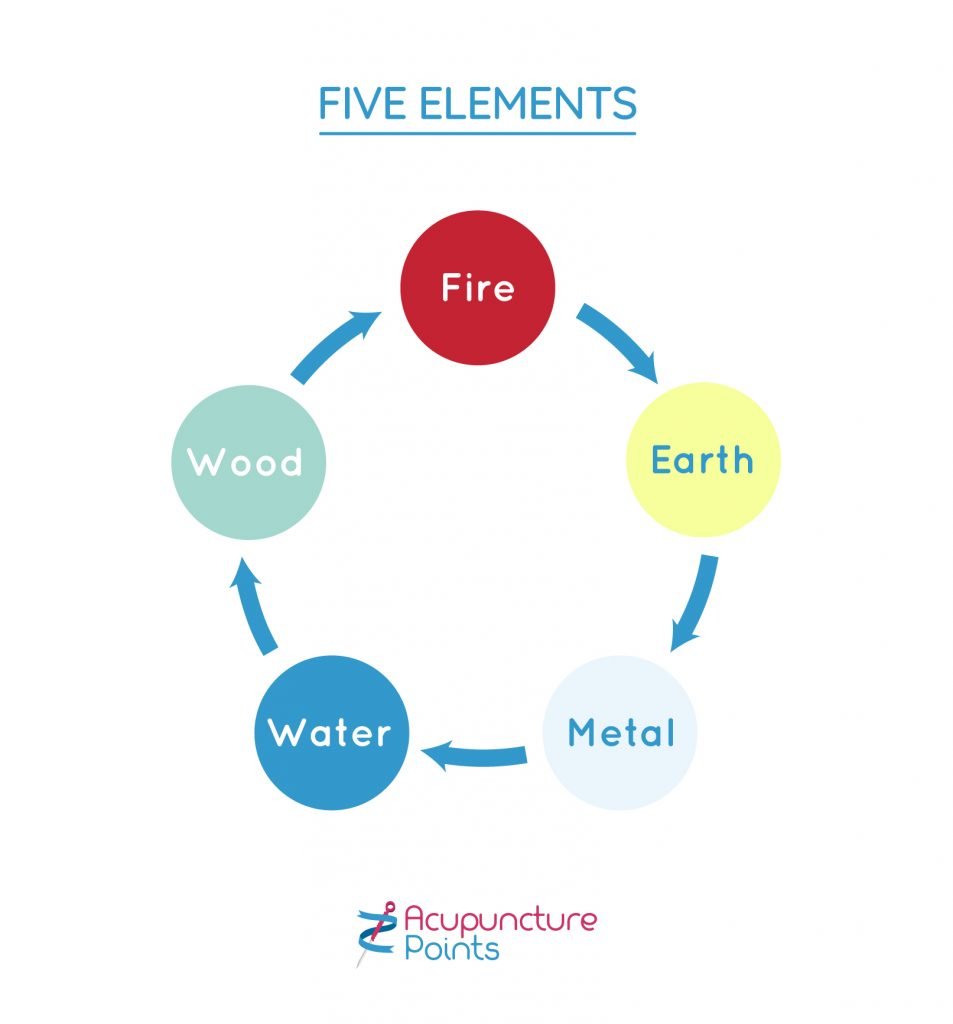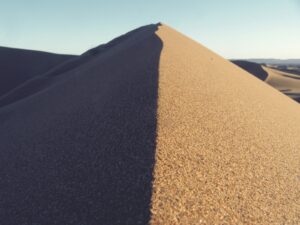Subscribe to the Newsletter
If you are interested in understanding how Traditional Chinese Medicine can improve your life sign up to my newsletter for the latest updates.

Intrinsic to TCM Theory is an implicit interconnectedness.
Almost any kind of pain can relate to some other aspect of the patient’s life or body. What appear to Western medicine as separate problems turn out, in Chinese Medicine, to be part of a single pattern. In the following we explain some of the more important parts of Traditional Chinese Medical theory.
In TCM theory, although the basic idea is simple, understanding the ramifications of Yin and Yang is not so easy. Basically, Yin is something that is moved or heated, and Yang is the force or energetic means that moves or heats it. In us, yin is the body, yang the life in it. When we are formed, the two come together. They part when we die.
Yin and Yang mean something only in relation to each other, in the same way we say something is hot: the freezing point of water may be cold to most of us, but is comfortable to a penguin in the Antarctic winter.
In our bodies, the parts that are more stable, that last longer, that are more hard to the touch, are generally more Yin. For example our bones are yin as compared with those parts that change more quickly, such as the skin. Between these two extremes lie the muscles, organs, nerves, circulatory vessels, our brain and spinal tissue, and so on. Our blood is much more yang in nature than our bones, because it moves all the time around within our bodies. But Blood is yin compared to the heat or warmth in our bodies, which is more yang.
In another way, the upper parts of our body are more yang, because although our legs carry us around, we do more constant movement with our hands and minds. Equally, from this logic, being further away from the Earth, which is relatively Yin, our heads and the upper portions of our bodies are nearer the sky – the Heavens – which is Yang in nature.
Also, warm air rises towards the yang, whereas cold air sinks towards the earth (yin). Consequently cold is more yin, as compared with heat, which is more yang.
In good health, yin and yang work together, neither being uppermost: they interact to each other’s benefit. When we work, the intention is yang, and what does the work is yin, the body.
Nowadays, in modern Western society, we often work sitting, using the mind and the hands and the voice. These are relatively yang activities, at least compared with manual work such as making beds, or lifting, carrying, digging, pulling, pushing, hoeing etc.
Illness can arise from many causes. One of them is overuse of any particular activity. Modern office work that stops us moving and makes us use only one part of our bodies can easily lead to illness. That’s because we maintain health when energy flows around and between the different parts of us.
Office workers often suffer from tension, caused by a build-up of Yang. This affects our more Yang areas, being the upper part of the body, the head (headaches), the neck and shoulders (tight), the chest (breathing, respiration and circulation). All these can trap Yang as tension.

Conversely, those who sit too much end up with congestion and heaviness in the lower part of the body: haemorrhoid, sore back, varicose veins, painful periods. This comes from yin energy not moving around. Why? Because yang didn’t move it – we didn’t think to get up and move around!
Those who spend all their time working with computer or television screens are using up the energy needed by their eyes. The TCM theory attitude to this is that the yin-like nutritional energy for their eyes, (technically called ‘Liver Blood‘), gets depleted, leading to either tiredness (lack of qi) or inflammation (excess of yang because of too little yin) or both.
Why would one person get tired and another get an inflammation?
This usually depends on the intensity with which they work, the brightness of the light, and their basic health. A robust person tends to get inflammation, a more depleted person gets tired, unless the latter is deficient in Yin, in which case they might get a mild inflammation (= weak yang, because of deficient yin).
Click for more about Yin and Yang.
So TCM practitioners spend part of the interview discovering, amongst other things, in what ratio of yin, yang, qi and blood that the patient’s health consists of. Simplifying, problems at the top of the body are more likely to be yang or yang excess in nature: those down below are more yin or yin-excess in nature.
You may have heard of acupuncture channels, which traverse the surface of the body. Not only do they extend from end to end of the body, inside and out, they link with one another at different sites, with minor meridians running off the main ones. These are the channels and ‘collaterals’.
They are distinct from nerves, lymph and blood vessels; almost a separate network.
There are grounds for believing that they really do exist, although laboratory proof has been difficult. (But nobody had any idea of electricity before the means were found to measure it, and the TCM theory is that these channels, or meridians, are pathways for energy.)
Pain happens where there is either too much, too little, or the wrong kind of energy, although the problem may not necessarily be at the place where the pain is felt. On which meridian the pain lies can be very important when it comes to diagnosis and treatment.
Acupuncture points lie all over the body: some of them are identical to trigger points identified more recently, but many lie along acupuncture meridians. Many acupuncture points treat not only points along the meridian but also affect the way the body works, and can affect our state of mind, as well as our energy, and the pain we feel.

Acupuncture needles are smaller than hypodermic needles, and unlike hypodermic needles, they are solid, but flexible, and thinner. We use each needle only once, after which it is destroyed. When an acupuncture point has been selected for treatment, the needle is inserted very swiftly through the skin with – for most people – a minimum of sensation.
Click to find out More about Meridians.
An important category of acupuncture points are the Element acupuncture points.
There are many ways to treat the meridians and points, including moxibustion, guasha, reiki, shiatsu, acupressure, tuina and by concentrating on the point mentally.
Once inserted, the needle then ‘meets’ the energy of the body. A sensation is often felt, which varies from being heavy, dull, slightly cramping or bruised, to a mild electrical feeling. Don’t be concerned if this is not the feeling you get! People differ! Some people feel nothing! And in Japanese and some other forms of acupuncture, de qi is seldom needed.
These sensations, depending upon what the acupuncturist intends, may be transmitted along the meridian, or used to affect the energy in the meridian or in your body.
De Qi means ‘the qi grabs’ the needle. Your acupuncturist often notices this before you do, and may ask whether you notice anything. In many kinds of acupuncture, this sensation is important.
If Yin and Yang are two theoretical poles of existence in TCM theory, Blood and Qi are the life between them. We can’t see Yin or Yang, but we know what blood is, and we can see life in people. Blood and Qi are words used technically and they describe rather more than just the red stuff in our veins, and the party spirit at Christmas.
Defining Qi should be easy but isn’t. In TCM theory it is easier to talk about its deficiency or about what happens when it misbehaves.
Qi deficiency is tiredness and under-function: some part or parts of the body fail to do their job.
The usual signs of Qi deficiency include a low or weak voice that runs out of breath easily, sweating when there is no obvious reason for it, tiredness, runny stools, and lack of appetite.
There are many more specific signs of Qi deficiency, however.
For example,
Each of the Zang-fu has its own picture when Qi deficient.
Qi can also ‘sink’, which usually means we get a heavy, dragging, or bearing down sensation, and can bring prolapse of an organ, with depressed spirits.
And Qi can also ‘stagnate’ (see below) – a big subject.
In TCM theory, it can even ‘rebel’, which means move in an undesirable direction. For example, if we vomit, our Stomach fu, which should be taking food downwards, is rebelling and ascending, instead of descending. So we get a syndrome we call Stomach Qi Rebels.
An important cause of many diseases in TCM theory is Qi stagnation.
Indeed, one of the greatest of Chinese Doctors (Dr Zhu Dan Xi 1380AD) said that ‘All the 10,000 diseases begin with stagnation of Qi’.
What he meant was stuckness and stagnation. (Interestingly, a basic premise in Homeopathy is that underlying all disease is Psora, which equates fairly closely with what Zhu Dan XI meant. I think of Psora as a laziness to get going, an under-function.)
Qi stagnation can come from Qi deficiency – which can itself lead to feeling low emotionally, but also from emotional causes.
Acupuncture automatically moves Qi, whereas many Chinese Herbs don’t: we may need to add other herbs to a herbal formula to make the Qi move. This is one reason why Chinese herbal formulae are made up of many herbs, carefully balanced, to achieve the right effect.

Taking just one herb you have heard about may not be a good idea.
When Qi stops moving, life cannot get on, and things build up. A frequent indication of this is abdominal discomfort and bloating; ‘bulges’ that move around – often due to flatulence. The area feels distended. Or lumps in the breasts or abdomen that feel soft and which move around or come and go.
Many cases of what used to be called spastic colon, now more often attributed to ‘irritable bowel disease’ are at least in part due to Qi stagnation. The main sensation is that of distension, congestion, sometimes swelling, and this comes and goes, or moves around. Accompanying it there is usually frustration, depression, irritability, sadness, boredom, stress, and almost any kind of emotional problem that hangs around too long, with mood swings from time to time.
Qi stagnation occurs before periods in many women’s lives. TCM theory has a clear understanding of this.
With TCM theory, if Qi flows properly and smoothly, all parts of the body receive what they need, they function harmoniously and within their limits, and there is no room for disease.
Over time, continuous Qi stagnation can lead to Blood stagnation (see below), which becomes more painful, with stabbing stitching pains, and can be more serious: the sensation doesn’t move around and there is less of a feeling of distension.
This can lead to polyps, varicose veins, tumours, piles, blood clots and so on. These can affect many parts of the body, including the lungs, intestines, heart, brain, limbs, and abdomen. TCM theory has developed some very effective strategies for dealing with stagnation of Qi and of Blood.
Qi Stagnation occurs to everyone. If it continues for too long, it brings a huge range of diseases in its wake, sometimes chronic.
Because of interest in my Qi Stagnation page I wrote a book about it: Qi Stagnation – Signs of Stress
Click to read More about Qi Stagnation.
Emotions that have either over-run their natural course, or been too strong, or have been repressed, are the most common causes in our society in the West: anger, grief, fear, frustration, boredom, worry, and so on – they can all bind our Qi.
Emotions that have either over-run their natural course, or been too strong, or have been repressed, are the most common causes in our society in the West: anger, grief, fear, frustration, boredom, worry, and so on – they can all bind our Qi.
In TCM theory, other causes of Qi stagnation include external pathogenic factors.
These include
Qi stagnation can come from Qi deficiency (see below) which acts like a river suffering from drought. The flow is sluggish, muddy pools appear and disease builds up in the stagnant water.
In TCM theory, Qi is affected at the onset of many diseases, and Qi stagnation often accompanies disease if it isn’t the cause. Ensuring that Qi moves steadily and harmoniously is a prerequisite for successful acupuncture. Whereas acupuncture nearly always moves Qi by its very nature, herbal formulae often need moving herbs to ensure that the Qi keeps moving.
How do we become Qi deficient? Apart from inherited tendencies, we can bring Qi deficiency on ourselves by various means:
In TCM theory can we have too much Qi? We certainly can! If you take Qi tonic herbs such as Chinese Ginseng for too long, or perhaps without other moderating herbs to balance the formula, you can end up feeling jittery, over-anxious, and with sudden palpitations and nosebleeds (because the Qi propels the blood out of the blood-vessels). This becomes Yang Excess, definitely too much of a good thing!
Excess Qi improves by taking exercise.
Deficient Qi deteriorates as you take exercise, or later in the day, but is better in the morning after a good sleep: the opposite of excess Qi.
Every part of the body has qi. No part could exist without this life-energy, and Blood is actually another form of qi, just thicker than the ‘qi-stuff’ that gives us vitality and life.
Blood is the mother energy in the body: it makes muscles, bones, brain, tissue and all the rest. It provides a resting place for the qi.
Indeed, the Chinese say that whereas Qi leads the Blood, Blood is the mother of Qi.
So they use the term Blood in a different way from Western Medicine. From the Chinese point of view what we call blood is just a red liquid, unless it has Qi, when it becomes Blood!
How does the red stuff become Blood? The beginning of the process depends on good Stomach Qi to feel hungry, eat, swallow and digest the right food and liquids, transforming them into the red stuff, first stage.
This ascends to the Lungs, which move it towards the Heart, giving it energy. But it is only in the Heart that it becomes Blood. Hence the TCM theory saying that the ‘Heart governs Blood’. The main function of the Blood is to nourish the body, to moisten it and to provide a place for the Mind to dwell and thrive.
Words that describe the actions of Blood include stability, suppleness, good texture, resourcefulness, and good complexion. There are four kinds of Blood disharmony.
Read even More about Blood here.
When Blood-deficient, we get
(Not necessarily all together! However, some of these problems can occur from other causes in TCM too.)
And that is only for starters. Blood deficiency occurs when the Spleen energy is deficient, meaning that our digestion fails properly to digest the food and turn it into blood.
Many diseases come from imbalance between Qi and Blood, or a problem in one or the other. The causes of disease are many and various, and we have listed some of them under Causes of Disease, Internal or External.
Sometimes the problem comes from one of the underlying zang-fu organs failing to function Alternatively it comes from one of the energy reservoirs controlled by the extra meridians working inefficiently. Or Blood may become a cause of disease itself, because of deficiency, heat, or what is called stagnation.
In TCM theory, Blood is a big subject!
Blood Heat frequently comes out as skin disease or bleeding with a sensation of heat.
Stagnation of Blood usually occurs with a dark or purple complexion or eruption, and with the buildup of tumour-like masses.
Pain associated with this is usually fixed in position and can stab or stitch. But Blood stagnation often occurs because Qi lets it or makes it stagnate.
When Blood stagnates, it is said to move more slowly, and so it becomes darker, we look darker, our lips and nails go darker, our menses are darker, with dark blood clots, and we find lumps under our skin, for example in the abdomen, that are impossible to move. The kind of pain we get is stabbing or boring.
For examples, click on
Loss of Blood
Any diseased condition that leads to bleeding, like coughing up blood, haemorrhoids, vomiting blood, heavy or prolonged blood, produces loss of Blood, the symptoms of which are given above under Blood Deficiency.
The reason for having this as a separate category is that it has various causes, and to treat it you need to know which kind of Blood Loss you are treating: whether it comes from deficiency or excess, stagnation of Blood or even Yin deficiency.
TCM theory explains many diseases in terms of Blood syndromes. When the correct action is applied to improve the condition of the Blood, the disease improves or disappears.

Stay in Touch!
No spam, only notifications about new articles and updates.

Book a Video consultation if you want to know more about your symptoms
Western, Orthodox, medicine sees internal organs such as the heart, kidneys, stomach etc as discrete, occupying anatomically precise locations.
Traditional Chinese Medicine sees each Internal Organ as not only the organ itself but also incorporating emotion, colour and taste, and affected by climate and season.
This makes no sense to Western Medicine, but observant doctors verified these associations thousands of years ago.
In the same way that a Western Doctor might diagnose diabetes from several factors such as polyuria, thirst and debility, a practitioner of Chinese Medicine sees the influence of a particular Zang-fu from the relationship of its presenting symptoms.
Read More about Zangfu here.
TCM theory lists the five zang as the Heart, Spleen, Lungs, Kidneys, and Liver. These are the ‘solid’ organs.
The Fu are the Small Intestine, the Stomach, the Large Intestine, the Bladder and the Gall-Bladder. These are the ‘hollow’ organs. They zang and fu form pairs.
| Zang ‘solid’ organs | Fu ‘hollow’ organs |
| Heart | Small Intestine |
| Spleen | Stomach |
| Lungs | Large Intestine |
| Kidneys | Bladder |
| Liver | Gallbladder |
Whereas the hollow organs, the fu, merely store and transport energy, the solid organs, or zang, transform it.
The Zang organs are prime. Problems in the zang can transmit to its related fu organ. Indeed, we sometimes use the fu organ to drain problems from its zang.
Each Zang has a special relationship with one of the sense organs, and with a different body tissue, emotion and weather or climate, and so on.
To understand how this works, consider that if you know someone whose main emotional personality is one of over-concern, and/or over-sympathy for others, who has a more than usual desire for sweet foods, who worries a lot, and whose energy perhaps dips during the morning, then probably you have someone whose Spleen and Stomach zang-fu organs are out of balance. He or she will perhaps have digestive and weight problems.
Someone trained to look for these correspondences can often make predictions about health from a few moments with the person concerned.
These correspondences have been arranged into what has become known as the Five Element Diagram.

It shows how the different phases or elements inter-react, and makes suggestions for treating people with imbalances. This ‘Five Element’ system of treating people has been very successful, and a number of Acupuncture Schools emphasise it.
For more, click on Five Elements.
There are, however, a number of other ways of classifying and treating disease, and one of the most important is the system of Eight Principles.
Whereas the Five Element system explains some of the correspondences which turn up again and again, the Eight Principles system looks more at the overall energy of the body-system and where there are excesses or deficiencies. (For some reason this is always called the Eight Principles but in fact there are really only four pairs!)
| Yin | Yang |
| Interior | Exterior |
| Cold | Hot |
| Deficient (also called ‘Emptiness’ or ‘Empty’ | Excess (also called ‘Fullness’ or ‘Full’ |
Every treatment ultimately aims to balance Yin and Yang, so that the patient becomes symptom-free.
This means strengthening where there is deficiency, and dispersing excess.
In reading through the following, bear in mind that any situation will be a combination of all 8 principles. For example, a disease may be classified as a full-exterior-cold-yang condition, and another might be a deficient-interior-hot-yin condition.
Read More about the Eight Principles here.
Disease patterns are either full or empty.
A full disease is experienced as being one without sweat, but with severe pain or aches.
Here the body is fighting hard to keep the disease at bay. There may or may not be heat or cold.
An empty pattern is experienced with sweating and relatively less severe pain (though pain is subjective!)
Fundamentally fullness and emptiness relate to the body’s ability to defend itself, and to the source of the pathogenic factor. If someone has good vitality and the source of the illness is external, such as when catching a cold, it is a full pattern.
Conversely if the individual has poor health or weak vitality, the condition will be empty. If someone with weak vitality catches a cold, then there will be a situation combining both emptiness on the interior with fullness on the exterior.
This may seem like playing with words, but it is extremely important to distinguish full from empty.
For more, read Excess or Deficient.
If, using TCM, one strengthens a full condition, the person will get worse, the disease will remain longer, and may penetrate deeper.
If one disperses an already empty condition, the patient will also get worse. It means he may take much longer to get better than he would have otherwise. That’s because the effect of dispersing energy in an already empty condition is to make his health weaker and less able to defend itself.
In a combined emptiness and fullness condition, care must be taken to clear the fullness and strengthen the emptiness, usually in that order.
Modern medicine – in my opinion – has too often regarded most or at least many diseases as being Full, thereby justifying suppressive measures to treat them. Suppression has many dangers.
The question this poses is whether the location of the problem is on the exterior (skin, muscles and channels) or interior (eg. Zang-fu internal organs).
Confusingly, you often get an interior pattern disease affecting the outside of the body, as for example in chronic skin disease such as eczema, which is not cured by external applications. (However, fortunes are made from persuading people otherwise!)
But an Exterior pattern of disease, one that comes from an external pathogenic factor like catching a cold, often leads to shivering, with hot and cold sensations and usually comes on quickly.
Other kinds of exterior disease pattern can take longer to develop, as they penetrate along the channels. One example is of someone who gets caught in the rain and over the next few days becomes stiff. Here the channels are becoming obstructed as the external pathogenic – the damp – factor pushes further into the body along the channels, or meridians, of acupuncture.
This can, if untreated, or if wrongly treated to remove the symptom but not the disease, become an interior disease.
Indeed, the wrong treatment (usually with Western Medicine, but sometimes when incorrectly treated by a practitioner of TCM theory) suppresses the body’s natural means to externalise the disease, and can lead to long-term and chronic problems.
The usual symptoms of an Exterior disease are when the symptoms arrive fairly quickly (an ‘acute’ disease), with a fever or chill, aches and pains, stiffness, and dislike of cold.
Other symptoms depend on whether it is combined with Hot or Cold (see next section).
Usually the correct treatment markedly and quickly improves the condition. On the whole, exterior disease is easy to treat, although with acupuncture a number of treatments in quick succession may be necessary. Herbs work well, too.
‘Interior’ problems affect one or more of the zang-fu organs. Most patients of TCM in the West come for Interior problems. That’s simply because patients don’t seek help early enough, so an exterior pattern internalises. Or they are not aware of how fast alternative therapies such as TCM can benefit Exterior disease.
Unfortunately, self-medication with analgesics and anti-inflammatories often prolongs External disease. See why under Suppression.

The symptoms of interior zang-fu imbalance depend on the particular zang or fu and the nature of the problem. Whole books have been written on the combinations for a single zang, and we can’t afford the time to write a website big enough to cover all this! Do look at the reading list, however.
These may seem self-explanatory, but complications arise depending on whether the condition is full or empty, interior or exterior.
For example, many menopausal women experience heat flashes, of ‘flushes’, which can be extremely uncomfortable, embarrassing and debilitating. The flash can come with flushing and with sweating. You would think this was pretty definitely an exterior full condition.
Wrong! Almost certainly it is a deficient internal condition! It just happens that the body disperses the heat on the outside, but its cause is a deficient reaction by one or more of the zang-fu, usually the Kidney, Liver or Heart, which are on the interior.
Even more confusingly, it is possible to have heat in the interior and cold on the exterior! Or vice versa.
Recognising and distinguishing these different classifications takes training.
TCM breaks these down into categories.
Constitutional causes of ill-health include inherited conditions, problems arising during pregnancy or childbirth, and a state of health that mirrors what we might call poor genes. Often much can be done to palliate and improve these conditions, but cure is not always possible.
Prolonged illness or a series of illnesses, or a severe illness, or other ‘insults’ to the body or mind, weaken the constitution. (By ‘insults’ to the body or mind, we mean – for example – frequent drug-taking, or long periods of heavy medication, and other forms of self-abuse.)
Non-conducive habits include overwork, over-worry, over-strain (mental or physical), fatigue, excessive or deficient physical exercise, prolonged or excessive sexual activity, or having too many pregnancies or abortions or children.
Non-conducive food habits mean not just poor quality or contaminated food (contaminated by poisons, colours, preservatives, chemicals, antibiotics, steroids, fungicides, pesticides or non-food stuff), but food that isn’t fresh or that doesn’t suit you.

Only during the last hundred years have we really been subjected to food that isn’t organic, Now many foods owe as much to the chemist as they do to the farmer. The disadvantage of chemically boosted food is that it may not contain the nutritional qualities which our manipulated taste-buds expect of it. Also, it may contain new substances which have not been tested over generations for safety, and some of which affect us adversely.
In trying to eat a good diet from the Chinese viewpoint, it is easier to take fresh, organic food.
To find out which foods don’t suit, you need to know what your health is doing.
In acute disease, Hahnemann (the originator of homeopathy – see separately on this website) suggested that, broadly speaking, you should eat whatever you desire – not what you think, or someone else thinks, is good for you. This does not include medication: we are talking about food. These food desires or aversions, arising during acute disease, help when diagnosing the condition. They often differ from what the patient likes or dislikes at other times.
But in chronic disease you can definitely improve your health or chances for better health by eating those foods that balance your constitution.
First, therefore, you need to know what your constitution is, and for this you probably need to see a practitioner of Chinese Medicine who knows what she or he is talking about. Otherwise, you have a fair bit of reading to do. See the reading list.
Then you need to know what a food does, since food, from the Chinese point of view, has qualities that go beyond mere vitamins, minerals, protein, carbohydrate and oil. A given food can be warming or cooling, better for blood than qi, dampening, neutral and so on.
The Chinese have spent quite a few thousand years working out which does what. You can make yourself ill if you persistently eat foods which are unsuitable for your constitution.
But they didn’t know about the intensive farming methods now used, the massive investment in chemical fertilisers and so on. Consequently, the energetic qualities they attributed to foods may not apply to non-organic modern foods or to foods not grown or prepared according to stable, traditional methods.
Other bad food habits include eating at irregular times, Or we eat when stressed or rushed or otherwise busy. Another cause is eating too fast, not chewing properly, over-eating or eating too frequently. Gulping food is a problem. So is taking food that isn’t properly prepared or at the correct temperature. Although we know all this, we still do it!
It also includes eating too much food of one type or taste. That means we exclude certain foodstuffs that we need.
Food is a big subject and there is no doubt that poor food habits contribute to ill-health and lowered immunity to disease. Conversely, eating the right foods can produce staggeringly beneficial results. Our bodies have wonderful health-creating powers, given the means.
One word of caution concerning raw foods! Chinese medicine recommends that, particularly during disease, food and liquid be taken lightly cooked, and warm. This makes is easier to digest and puts less of a load on your system. There are exceptions, but they are rare. Even when healthy, unless you know for sure what your constitution requires, it is better to err on the side of caution, and to take things warm.
All these upset the flow of qi in our bodies. Severe trauma also stagnates the movement of Blood, and the long-term effects can be dire.

Many illnesses can be traced back to an accident or to an operation which, although successful from the surgical point of view, caused some form of stasis in the system.
We can feel the results for many years. Our body then becomes more susceptible to subsequent diseases.
Both of these can be both short and long-term causes of disease.
Open almost any newspaper these days and you will see reports of adverse effects from standard medical practice in the doctor’s or hospital’s surgery. The name for this is iatrogenic disease.
Nowadays, manufacturers must list the possible expected side effects of drugs, but these are the side effects that were discovered during drug trials or subsequently in clinical practice.
One should remember that manufacturers are in an impossible situation, because there is no way that every possible side effect for every single person can be listed. You and I might take the same medication and notice effects different from one another and from those listed by the manufacturers during research. The individual response is what matters, and that is not possible to foretell: manufacturers can only generalise.
This means that it is possible to have a strong but unlisted drug reaction. Indeed, we are at last realising that many drugs, tested on men, affect women differently.
However, we are not talking about that kind of wrong treatment here, but for example, the effect of dispersing energy when there is already a deficiency, or reinforcing energy when there exists too much already. In other words, receiving the wrong treatment, including Chinese medical treatment.
Fortunately, acupuncture is relatively safe. Even if a wrong treatment is done, it usually corrects itself. But obviously, acupuncture should be carried out by trained individuals who know what they are doing, as it is always possible to do harm if one puts one’s mind to it. Or, one may add, if untrained.
Herbs, the other main treatment method in TCM theory, can cause more harm than acupuncture when incorrectly used. Again, the same situation applies: go to someone with knowledge or experience, who is unlikely to stimulate yang when he should be stimulating yin, or vice versa.
However, Chinese herbal medicine is much gentler than Western and medical drugs. Even when the herbs are wrong, given the range of warnings we give people, and the general advice, it takes someone with unusual determination to continue taking something when it is clearly making them feel worse. And when you stop taking the herbs, the condition usually quickly reverts to the former status quo, unlike the situation with drug medication.
Nevertheless, there are concerns about the effect of Chinese herbs, especially on the liver. For a discussion of this, please see our section on Treatment with Herbs.
Inter-reaction between mind, emotion and body is intrinsic to understanding Chinese medicine. Mind, body and emotion all affect each other, and none of them is seen as dominant, from the point of view of deciding how disease enters and spreads, although in any one case, one particular cause will usually predominate.
So physical problems can lead to mental conditions, emotional upsets can lead to mental or physical conditions, and any condition can be caused by, or cause, an emotion.
But emotions have more effect on qi. That’s because all parts of the body, its energy, blood, bones, brain, muscles, flesh, tendons, arteries and so on are all considered to be different kinds of qi. Of particular importance to the smooth functioning of the organism are the zang-fu, the Internal Organ energies, and it is these which can get upset by emotional causes.
This is not to say that we should avoid emotional expression: stifling or suppressing it is another cause of disease. The problem comes when the emotion is too strong, or too prolonged for health. We can also make ourselves emotional by thinking ourselves into it, by ‘working ourselves up into a lather’, or by reading frightening stories, or watching something that disturbs us.
Late-night horror movies and videos come to mind!

These are not regarded as being conducive to good health.
Each emotion affects mainly a particular zang Organ. It also affects qi. Traditionally there are seven main emotions, but of course, there are more than this. For example, the list below doesn’t include envy.
All of these emotions, if prolonged inappropriately, lead to stagnation of Liver qi, and then turn into Fire, giving symptoms of ‘heat‘.
In addition to affecting a particular zang, the emotion can spread to other zang-fu. Anger affects the Liver, but the Liver, when not flowing correctly, affects in turn other organs.
People who express anger too freely often suffer from Stomach Fire (eg gastric ulcer or heartburn) and those who suppress it may get gastro-intestinal spasms, colic, spastic colon, irritable bowel etc..
Chinese medicine considers that many diseases start, or are exacerbated by, external causes of disease. This means environmental conditions.
This includes exposure to drafts, air-conditioning, central heating, dry air as on long air-flights, humidity, heat from working besides cookers or furnaces, working in refrigerators, and damp working or living conditions.
The traditional external conditions are Wind, Summer-Heat, Fire, Damp, Dryness, Cold.
These pathogenic forces become effective in your body only if it can’t resist them.
Having said that, strong wind can ‘penetrate’ even a strong body. Indeed, even a weak draft might be too much for someone recovering from illness, or in a state of fatigue.
Although these are the external factors leading to disease, the disease is defined in terms of the body’ reaction to it.
So we might expect someone caught in a cold wind to be suffering from Wind-Cold: but if their symptoms are those of Wind-Heat, no matter what caused them, they have Wind-Heat.
Conversely, someone else might theoretically develop symptoms of Wind-Cold from working beside a furnace!
External causes of disease enter our bodies via the skin, the nose and the mouth. Most people would accept that it is possible to catches illnesses via the nose: people sneeze; we inhale.
But through the mouth? Yet how often have we been told to wash our hands after urinating and/or before eating. (You haven’t? Well, you have now!) And of course we can inhale through our mouths.
For more see Internal or External Causes of Disease.

The Chinese have a concept of what is called defensive energy, which circulates just under the skin. This is weakened somewhat when we perspire, because sweating opens the pores, and the Chinese believe that Wind can penetrate through the skin, leading to what we in the West call a ‘chill’: wind-cold or wind-heat! Also sitting on damp ground or wearing wet clothes for too long lets damp ‘penetrate’.
Clothes make a big difference to our susceptibility to external causes of disease. In the West we aren’t good at recognising how we should protect ourselves. In a cold wind or Winter, a hat, scarf and warm clothes make sense, even when nipping out for a sandwich at lunch.
Remember that our bodies don’t react as fast as our computer screens. It can take anywhere between a few minutes and many hours before you notice you aren’t feeling well from invasion by such as cold or damp. (But not always! If you know you are susceptible to Cold, you can feel it gripping you, even within a few minutes!)
Finally, because we all have different constitutions which react in our own individual ways to disease, what starts off as one kind of externally caused disease pattern can turn into another kind. Cold can turn to Heat, Heat can lead to Dryness, and so on.
So although we define the pattern in external terms, (eg Wind-Heat) it actually defines a reaction by the body. That, in turn, determines the kind of treatment that will be effective. For a Wind-Heat pattern we do this, for a Wind-Cold pattern we do that, etc..
But … to keep this page within easily readable limits, for the latter please go to Acupuncture theory. See also Acupuncture Points.
Other pages you may like:

This Introductory Chinese medicine course introduces you to the amazing thinking behind this ancient medicine, now increasingly in demand.

The Scottish College for Chinese medicine provides introductory courses for all, explaining Chinese medicine and its cultural background.

Master Tung’s acupuncture is a hidden treasure, lost to China but recovered in Taiwan from where it spread round the world.

Knee pain has five main causes. It’s certainly worth trying acupuncture before you resort to surgery!
Subscribe to the Newsletter
If you are interested in understanding how Traditional Chinese Medicine can improve your life sign up to my newsletter for the latest updates.
Subscribe to the Newsletter
If you are interested in understanding how Traditional Chinese Medicine can improve your life sign up to my newsletter for the latest updates.